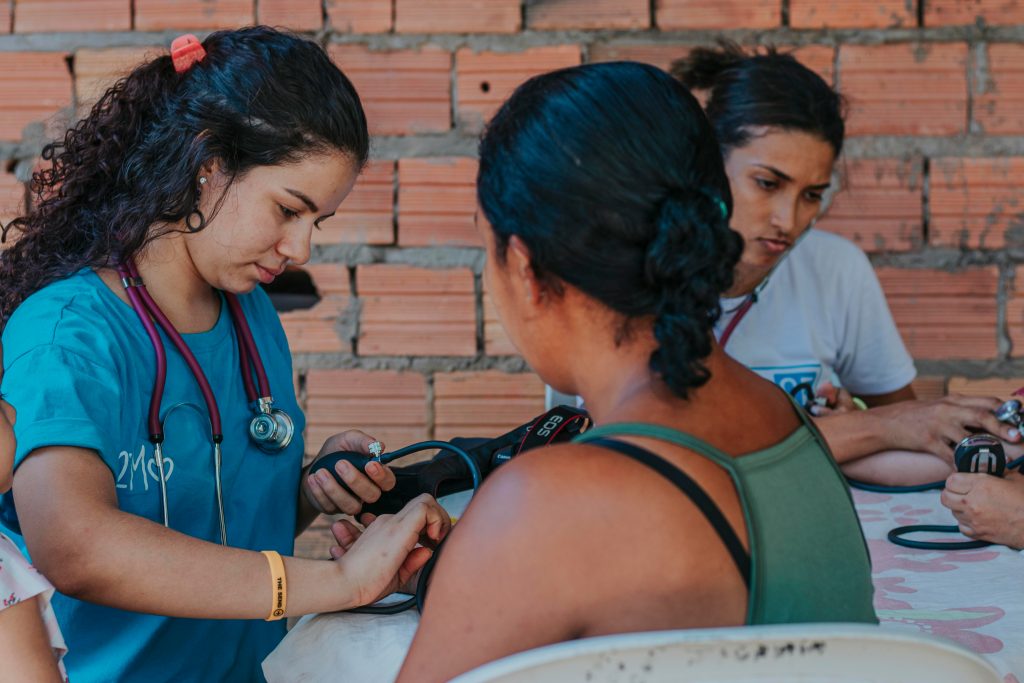
In healthcare settings, nurses often interact with patients directly. Experienced nurses understand the serious impact of miscommunication in healthcare. Poor communication can lead to the wrong diagnosis, inconsistent treatment, and can even create a threat to a patient’s health.
If you want to make it as a nurse, healthcare professional, or nurse manager, you must be able to communicate well under pressure. It’s a fundamental skill required for any healthcare professional, clinical nurse, or nursing leader.
In this article, we explore 8 essential communication skills that are important for nurses.
To excel in your nursing career and effectively connect with patients, you should master the following set of communication skills:
In addition to verbal communication, strong written communication skills are essential for nursing, enabling effective interaction via email, patient records, and correspondence with colleagues and families.
Whether you’re starting out or have experienced in nursing, continually enhancing your communication skills is essential for professional growth. Here are practical tips to help you become a more effective communicator:
Being a good communicator is being a good listener. Active listening can uncover crucial details about a patient’s health or concerns regarding their treatment.
Here’s how you can practice active listening in professional settings:
These techniques are valuable not only in patient interactions but also in navigating challenges with colleagues. It’s crucial to maintain impartiality to keep conversations productive and respectful.
Excellent verbal communication is crucial. Always strive to speak with clarity, accuracy, and honesty. It’s also important to know your audience and speak appropriately according to the person’s age, culture, and level of health literacy. If you’re feeling stressed or frustrated, be mindful of your tone and ensure it doesn’t affect your interaction with patients. Here are practical steps you can take:
Strong written communication skills are also essential for effective nurse-to-nurse communication. As a nurse, you will be responsible for maintaining accurate and up-to-date patient medical records to ensure optimal care. It’s crucial to prioritise patient confidentiality. Here are some tips to enhance your written communication:
Non-verbal cues can convey powerful messages beyond words. Employing elements such as facial expressions, eye contact, body language, gestures, posture, and tone of voice is vital for building rapport. Even a simple smile can make a significant impact. Here are ways to enhance your non-verbal communication skills:
Understanding and responding to nonverbal cues can provide valuable insights into a patient’s feelings and needs, complementing clinical assessments for more comprehensive care.
Nurses play a crucial role in communicating between the healthcare team and patients. This involves explaining health conditions, diagnoses, treatment plans, and medication protocols to patients and their families. This skill is particularly important for family nurse practitioners who work with patients and families to provide health and education counselling.
Patient teach-back is an effective communication method where healthcare providers ask patients to repeat the information they’ve been given. This approach enhances patient comprehension and promotes adherence to treatment plans. Misunderstandings can lead patients and their families to feel anxious or become defensive. For example, you can say:
Understanding the person behind the patient is crucial. Patient-centred relationships are essential for fostering a sense of safety and comfort, which can enhance patient outcomes and trust. Here are some ways to establish meaningful connections:
Healthcare professionals must earn patient trust through active listening and taking every concern seriously. Trust develops over time, especially in settings that can be intimidating for patients. Creating a comfortable environment is crucial.
Nurse educators and leaders also play a pivotal role in fostering trust as they mentor the next generation of nurses. To inspire trust, nurse leaders and educators should:
In your daily work, you’ll interact with individuals from diverse social, cultural, and educational backgrounds. Each patient and colleague is unique, requiring sensitivity and awareness. For instance, assess a patient’s English proficiency and adjust your language accordingly, or arrange for a translator if needed.
When caring for transgender and non-binary patients, ensure to use their preferred name and pronoun respectfully. Understanding and respecting cultural nuances enhance communication and build trust.
Discover our HLT54121 Diploma of Nursing (CRICOS Course Code: 114217B) at Queensford College.
This nationally accredited program prepares you for a fulfilling role as an enrolled nurse. With a focus on a lifespan approach, you’ll learn to provide tailored nursing care across different life stages – from children to adults and the elderly, as well as people with a range of acute and chronic health conditions.
Hands-on learning is emphasised through clinical placements in diverse healthcare settings. Here, you’ll apply your skills, gain practical experience, and build confidence as a nurse. It’s a rewarding qualification that equips you to make a meaningful impact in others’ lives.
If nursing is your career path, our course is the ideal starting point.
Enrolments are currently open for 19th August 2024 – reach out to us today before spaces fill up!
